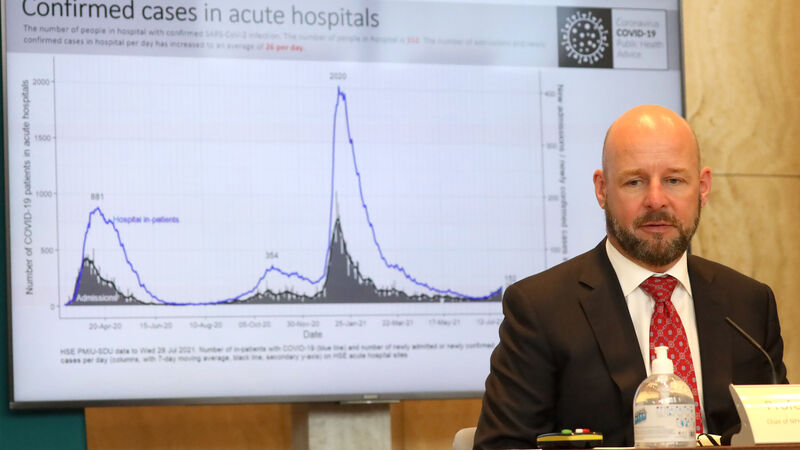'We wish it was all over but it's not': Daily Covid cases over 2,000 for first time since January

Professor Philip Nolan, Chair of the NPHET Irish Epidemiological Modelling Advisory Group, said the “real concern” is that there is “an underlying established pattern of exponential growth”.
A further 2,074 cases of Covid-19 have been confirmed this afternoon as vaccinations underway for 12 to 15 year olds.
This is the first time the daily figure has been over 2,000 since January 21.










